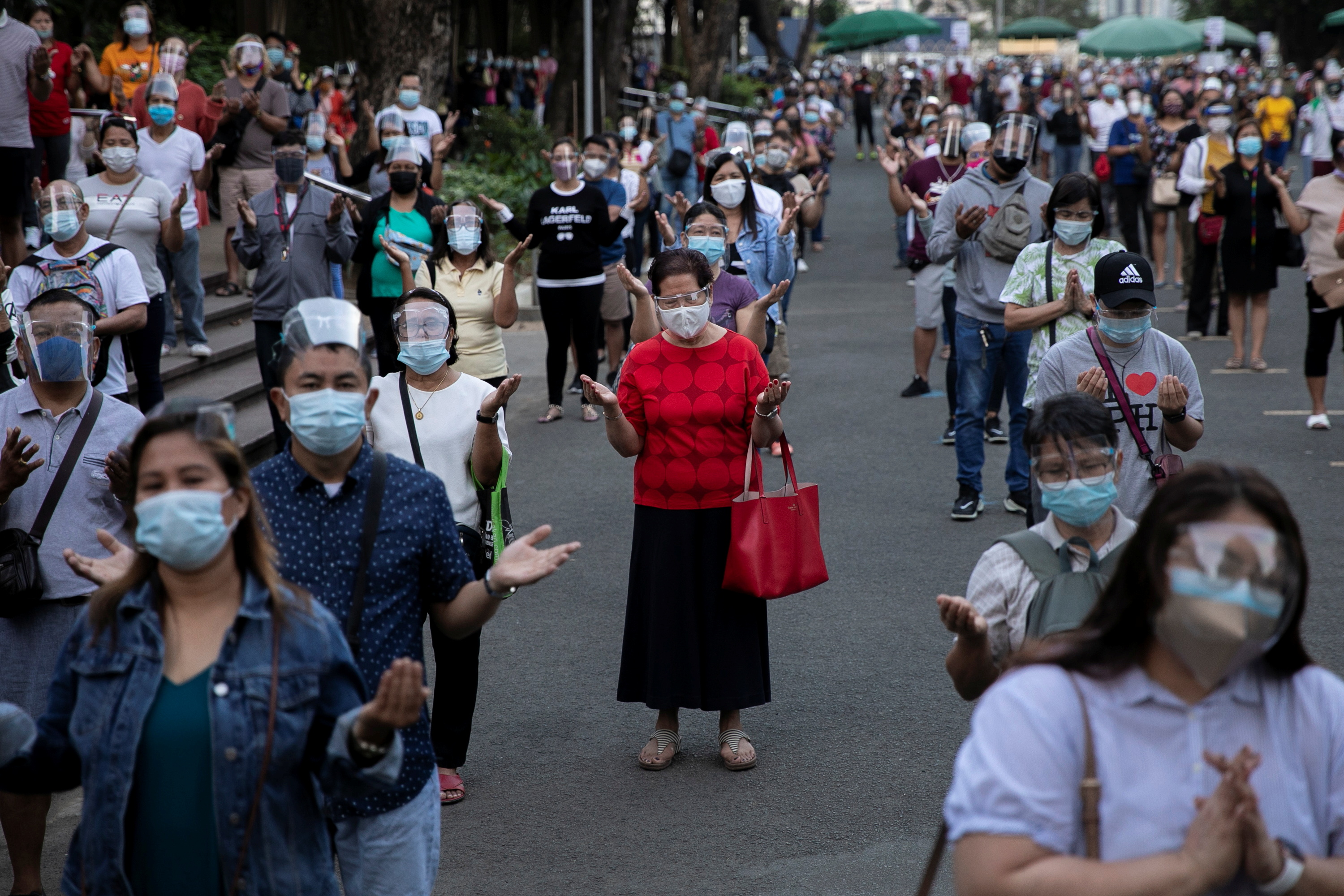

Here’s what you need to know about the coronavirus right now:
India opened up its coronavirus inoculation programme to people above 45 on Thursday as infections surge, which will delay vaccine exports from the world’s biggest maker of the drug. The government has previously said that people over 45 can register for inoculation from April 1.
India has already decided to delay big vaccine exports for now, including to the WHO-backed global vaccine alliance COVAX. It is currently using the AstraZeneca vaccine and a shot developed at home by Bharat Biotech, which is struggling to step up supplies.
Osaka leg of Olympics torch relay should be cancelled, governor says
Osaka prefectural governor Hirofumi Yoshimura said on Thursday the Olympic torch relay in the city of Osaka should be cancelled amid a sharp rise in COVID-19 cases, Kyodo News reported. The torch relay for the Tokyo Olympics is scheduled to go through Osaka prefecture from April 13-14.
The prefecture, which emerged from a COVID-19 state of emergency a month ago, reported 599 new cases on Wednesday, a jump from 432 on Tuesday. “We will ask people to refrain from going out for non-urgent matters,” Kyodo quoted Yoshimura as telling reporters on Thursday regarding COVID-19 countermeasures.
Countries in the Americas could see a worse surge in coronavirus cases than the previous surge last year, with Brazil, Uruguay and Cuba already suffering more, the Pan American Health Organization (PAHO) said on Wednesday. Director Carissa Etienne said the end of the Southern Hemisphere summer, following holidays where people grouped together and spread cases, had prompted spikes.
Vaccine supply “continues to be our greatest challenge,” said Etienne, with the organisation scouring the globe for more supplies and asking countries to hand over surpluses. There have been “far too many examples” of vaccine nationalism, she said. “The current system is hard-wired for inequity and that is not acceptable,” Etienne said.
Papua New Guinea’s health minister said misinformation shared on Facebook was the biggest threat to its COVID-19 vaccine plans, saying the social media giant must take steps to stop it.
Conspiracy theories about COVID-19 and the efficacy of vaccines are so entrenched that even frontline health workers are hesitant to take the shot, Jelta Wong said at a talk with an Australian think tank that was streamed online on Thursday.
The first dose of the COVID-19 vaccines from Pfizer/BioNTech and from AstraZeneca Plc produces only weak immune responses in patients being treated with the widely-used rheumatoid arthritis drug infliximab, researchers have found. The responses improved after the second dose, which suggests patients on infliximab should continue to practice enhanced physical distancing and not delay their second shot, researchers said.
Even after two doses, they found that a small subset of patients failed to mount an antibody response. The researchers said they suspect their findings will apply to other drugs in the class known as TNF inhibitors, including Abbvie’s Humira and Amgen’s Enbrel, two of the world’s top-selling medicines. Reuters
Oman Observer is now on the WhatsApp channel. Click here



